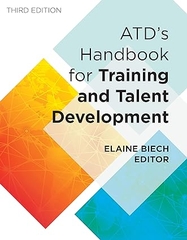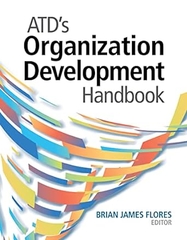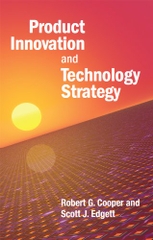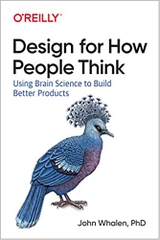-
-
-
Tổng tiền thanh toán:
-
-
Thông tin
-
Tìm sách theo yêu cầu
Why do some products make the leap to greatness while others do not?
Creating inspiring products begins with discovering a product that is valuable, usable, and feasible. If you can not do this, then it s not worth building anything.
- How do you decide which product opportunities to pursue?
- How do you get evidence that the product you are going to ask your engineering team to build will be successful?
- How do you identify the minimal possible product that will be successful?
- How do you manage the often conflicting demands of company execs, customers, sales, marketing, engineering, design, and more?
- How can you adapt Agile methods for commercial product environments?
Product management expert Marty Cagan answers these questions and hundreds more as he shares lessons learned, techniques, and best practices from working for and with some of the most successful companies in the high-tech industry. You will find that there s a very big difference between how the very best companies create products and all the rest.
Product Details
Hardcover: 242 pages
- Publisher: SVPG Press; 1st edition (June 18, 2008)
- Language: English
- ISBN-10: 0981690408
- ISBN-13: 978-0981690407
- Product Dimensions: 9.1 x 6.3 x 1 inches
- Shipping Weight: 1.2 pounds (View shipping rates and policies)
- Average Customer Review: 4.7 out of 5 stars See all reviews (167 customer reviews)
- Amazon Best Sellers Rank: #14,832 in Books (See Top 100 in Books)
Editorial Reviews
Review
"At eBay, of all of the leaders in the past decade, Marty had the most significant and lasting impact on how we create products."
- Frerk-Malte Feller, Managing Director, eBay Germany
- Frerk-Malte Feller, Managing Director, eBay Germany
"When it comes to creating inspiring products, Marty Cagan knows his stuff."
- Pete Deemer, Former Chief Product Officer, Yahoo! and CEO of GoodAgile
"Marty balances key product management principles, great new techniques, and examples that bring them all home."
- Jim Denney, VP Product Management, TiVo
"Marty is not only a seasoned expert on all aspects of the often ambiguous discipline of product management, his book also provides inspiration, tools and techniques, and really practical help."
- Judy Gibbons, Accel Partners
"This is a must read if you have any hope of building a company based on great products."
- Chuck Geiger, Former CTO, PayPal, Travelocity and Ask.com
"It doesn't matter how good your engineering team is if they aren t building the right products, and no one is better than Marty at helping teams discover the right products."
- Marty Abbott, Former CTO, eBay and Partner, AKF Consulting
--Back Cover
About the Author
Marty Cagan is founding partner of the Silicon Valley Product Group, where he helps companies create winning product strategies and develop the skills of their product organization as well as the techniques they use to create successful products.
During the past 20 years, Marty has served as an executive responsible for defining and building products for some of the most successful companies in the world. He was most recently senior vice-president of product management and design for eBay, where he was responsible for defining products and services for the company's global e-commerce trading site. Prior to that, Marty was vice-president of product at AOL and Netscape Communications, and a software engineer at HP Labs.
Most Helpful Customer Reviews
30 of 32 people found the following review helpfulBy Gloria Petron on June 14, 2009
Format: Hardcover
Comment Was this review helpful to you? YesNoI spent years as an interface designer in a risk-averse Fortune 500 company as the sole advocate for usability, wearing the additional hats of information architect, HTML coder, visual designer, and more. In that company, the developers were an abusive bunch who called the shots, fought me on every design proposal, and demanded tons of documentation before anything was ever built. I also had little access to end users. There were maybe two releases per year, and they were always painful.
I left that environment to become a user experience consultant in another Fortune 500 company. Despite the fact that I now had a fresh start in a friendlier environment with a more collaborative team of developers, I was wary and defensive. I didn't want to blow my new gig, though, so I was looking for guidance fast. I read two books that saved me: Alan Cooper's "Inmates Are Running The Asylum", and "Inspired".
Prior to these books, I'd heard the terms "waterfall" and "agile" before but never really knew what they meant. But now it was like suddenly learning the name of an affliction from which I'd been suffering. Several times while reading "Inspired" I caught myself saying, "Yes - yes, that's it! That's what happened to me!" It really was like the song by Roberta Flack: this guy knew my pain and had could have BEEN me in some of the stories he describes.
I'm not able to put into practice everything Mr. Cagan describes in an optimal environment, but thanks to this book I have a much better understanding of my hats, including ones I didn't know I was wearing. His insights have helped me learn to pace myself, and perhaps even more importantly, to forgive myself if I don't get to every single thing. I highly recommend this book to user experience professionals who are working for large organizations where it is a challenge to introduce and nurture new thinking.
I left that environment to become a user experience consultant in another Fortune 500 company. Despite the fact that I now had a fresh start in a friendlier environment with a more collaborative team of developers, I was wary and defensive. I didn't want to blow my new gig, though, so I was looking for guidance fast. I read two books that saved me: Alan Cooper's "Inmates Are Running The Asylum", and "Inspired".
Prior to these books, I'd heard the terms "waterfall" and "agile" before but never really knew what they meant. But now it was like suddenly learning the name of an affliction from which I'd been suffering. Several times while reading "Inspired" I caught myself saying, "Yes - yes, that's it! That's what happened to me!" It really was like the song by Roberta Flack: this guy knew my pain and had could have BEEN me in some of the stories he describes.
I'm not able to put into practice everything Mr. Cagan describes in an optimal environment, but thanks to this book I have a much better understanding of my hats, including ones I didn't know I was wearing. His insights have helped me learn to pace myself, and perhaps even more importantly, to forgive myself if I don't get to every single thing. I highly recommend this book to user experience professionals who are working for large organizations where it is a challenge to introduce and nurture new thinking.
34 of 37 people found the following review helpfulBy Miha Ahronovitz on February 28, 2010
Format: Hardcover Verified Purchase
It is a pity that there are only 5 stars to award the maximum appreciation for this book. There are a number of achievements that deserve, alone, five stars.
First, Marty Cagan clearly states what qualities a Product Manager must have. Not everyone is talented to be a Product Manager. The author lists unmeasurable traits, such as product passion, customer empathy, innate intelligence (there is no substitute for it, we learn), ethics, integrity and confidence. The latter is very important as the entire teams in engineering and marketing must be kept inspired. This leads to the corollary that simply training a person to be a Product Manager is not enough. One must know when an unsuitable person must look for other positions. This is something uncommon, to consider what many view a process driven function to a talent.
Second, the book asks where to place the Product Manageent function. In Engineering? In Marketing? There is a distinction between a Product Manager and Product Marketing Manager. As veteran product manager myself, I know the challenges to be part of engineering. Engineers are sometimes suspicious of marketing and their product manager becomes the "piñata" everyone beats in frustration. As part of Marketing, there is tendency to follow release processes and create demands engineering can not deliver in a logical way. Marty advocates the creation of a Product Council with equal rights as engineering and marketing
Marty says a successful product manager sees himself as the CEO of the product. This is absolutely true, but unfortunately the Directors of Engineering and those of Marketing, also see themselves as CEOs. As long as an independent product council does not exist, the product manager must be a CEO with zero authority. S/he must be a diplomat and shrewd negotiator before he can be a CEO. Yet the true blue blood product manager is the one whose skills are required for start up.
As startup is usually a one product or service company. Chapter 28 is dedicated to product management in a startup company. The challenge is a new start up is started with an idea that comes from engineering. However we must have the right product for the right audience, before "before burning through $500,000 or more in seed funding".
Every aspect of the product management function is presented.
I am an alumni of UC Berkeley Haas School Product Management executive program, one of few, if not the only program dedicated to Product Management. Berkeley program talks of portfolio management. What products to release, how many are completely new and how many are new releases of older or even very old products?
It all depends on the risk tolerance. A products portfolio must include new high risk, lottery-like winning products. This is what made Silicon Valley, Silicon Valley. After reading Marty Cagan, every professional team all over the world can produce "inspired" products. Silicon Valley and it's personalities now share all they know. But what is a low probability to create outside Silicon Valley is another Google. The Google Sequoia Capital VC's made more money in Google than all the rest of the portfolio combined over the last 20 years.
Another topic that I would have liked to see expanded in a next edition is pricing. How do we price the products in such a way that we do not leave money on the table? But this is another subject. Marty's book is both educational and thought provoking. The book self published by Silicon Valley Product Group, the company of Marty Cagan, went beyond the goal of being a reference for it's prospective v customers. It is THE BOOK for of product management, a must-read for anyone.
The idea of the product manager as a creator with talent and passion I advocated for years in my blog, "The memories of a Program Manager". It is re-assuring to see the same sentiments shared in the more comprehensive, practical and sensitive book of Marty Cagan..
- Link: http://www.amazon.com/Inspired-Create-Products-Customers-Love/dp/0981690408
First, Marty Cagan clearly states what qualities a Product Manager must have. Not everyone is talented to be a Product Manager. The author lists unmeasurable traits, such as product passion, customer empathy, innate intelligence (there is no substitute for it, we learn), ethics, integrity and confidence. The latter is very important as the entire teams in engineering and marketing must be kept inspired. This leads to the corollary that simply training a person to be a Product Manager is not enough. One must know when an unsuitable person must look for other positions. This is something uncommon, to consider what many view a process driven function to a talent.
Second, the book asks where to place the Product Manageent function. In Engineering? In Marketing? There is a distinction between a Product Manager and Product Marketing Manager. As veteran product manager myself, I know the challenges to be part of engineering. Engineers are sometimes suspicious of marketing and their product manager becomes the "piñata" everyone beats in frustration. As part of Marketing, there is tendency to follow release processes and create demands engineering can not deliver in a logical way. Marty advocates the creation of a Product Council with equal rights as engineering and marketing
Marty says a successful product manager sees himself as the CEO of the product. This is absolutely true, but unfortunately the Directors of Engineering and those of Marketing, also see themselves as CEOs. As long as an independent product council does not exist, the product manager must be a CEO with zero authority. S/he must be a diplomat and shrewd negotiator before he can be a CEO. Yet the true blue blood product manager is the one whose skills are required for start up.
As startup is usually a one product or service company. Chapter 28 is dedicated to product management in a startup company. The challenge is a new start up is started with an idea that comes from engineering. However we must have the right product for the right audience, before "before burning through $500,000 or more in seed funding".
Every aspect of the product management function is presented.
I am an alumni of UC Berkeley Haas School Product Management executive program, one of few, if not the only program dedicated to Product Management. Berkeley program talks of portfolio management. What products to release, how many are completely new and how many are new releases of older or even very old products?
It all depends on the risk tolerance. A products portfolio must include new high risk, lottery-like winning products. This is what made Silicon Valley, Silicon Valley. After reading Marty Cagan, every professional team all over the world can produce "inspired" products. Silicon Valley and it's personalities now share all they know. But what is a low probability to create outside Silicon Valley is another Google. The Google Sequoia Capital VC's made more money in Google than all the rest of the portfolio combined over the last 20 years.
Another topic that I would have liked to see expanded in a next edition is pricing. How do we price the products in such a way that we do not leave money on the table? But this is another subject. Marty's book is both educational and thought provoking. The book self published by Silicon Valley Product Group, the company of Marty Cagan, went beyond the goal of being a reference for it's prospective v customers. It is THE BOOK for of product management, a must-read for anyone.
The idea of the product manager as a creator with talent and passion I advocated for years in my blog, "The memories of a Program Manager". It is re-assuring to see the same sentiments shared in the more comprehensive, practical and sensitive book of Marty Cagan..
XEM CHI TIẾT TẠI AMAZON.COM
- Thông tin chi tiết
- Mục lục
- Đánh giá & bình luận của người mua
- Những cuốn sách cùng chủ đề hoặc có liên quan
Tại web chỉ có một phần nhỏ các đầu sách đang có nên nếu cần tìm sách gì các bạn có thể liên hệ trực tiếp với Thư viện qua Mail, Zalo, Fanpage nhé
Đăng ký nhận tin qua email
Hãy đăng ký ngay hôm nay để nhận được những tin tức cập nhật mới nhất về sản phẩm và các chương trình giảm giá, khuyến mại của chúng tôi.












